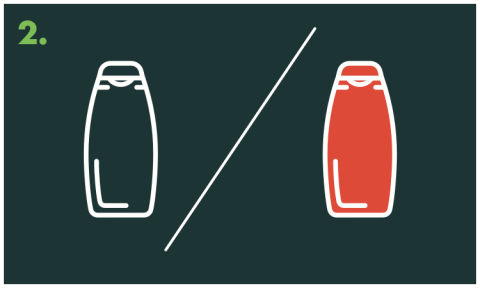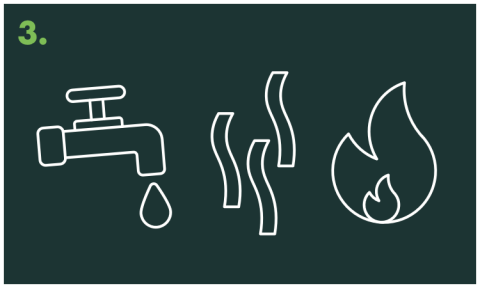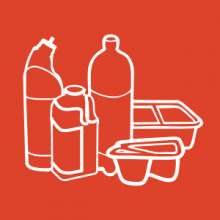Plastic
Plastic constitutes one of the most widely used materials in the UK and, as such, is one of the biggest contributors to the country’s waste. Around 275,000 tonnes of plastic is used every year in the UK, including 7.7 billion single-use plastic bottles. Much of this plastic ends up on our streets or in our rivers.
Since plastic is non-biodegradable, it is important to recycle it properly to prevent it ending up in the environment. However, only about one third of household plastic packaging is currently recycled, with most households throwing away at least 40kg of plastic every year.
Recycling plastic can be tricky, as all the plastics collected for recycling need to be sorted into different groups depending on which polymers they contain. If polymers are mixed together when the plastic is shredded and melted during the recycling process, they will weaken the recycled product.
Furthermore, there is often confusion about which types of plastic can be recycled. You should always check the label on the product packaging or your local authority’s website to find out.
You can learn more about how to recycle plastic bottles and plastic pots, tubs and trays on the Wales Recycles website.
Recycling process

Plastics are separated from other materials, if necessary

They’re sorted by plastic type and by colour – blue, green, natural and mixed

They’re cleaned, shredded, washed, melted and reformed into ‘pellets’

These pellets are used to create new items, including:

- clothes
- toys
- picnic benches
- bottles
- pots
- tubs
- trays
- ... and more







 England
England
 Wales
Wales
 Ireland
Ireland
 Spain
Spain
 Netherlands
Netherlands
 Turkey
Turkey
 unspecified
unspecified
 Vietnam
Vietnam
 Germany
Germany